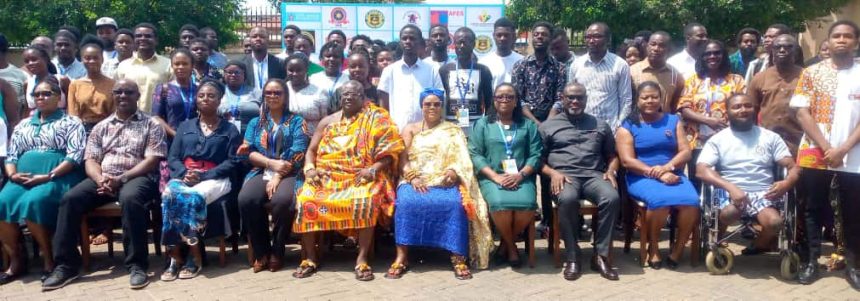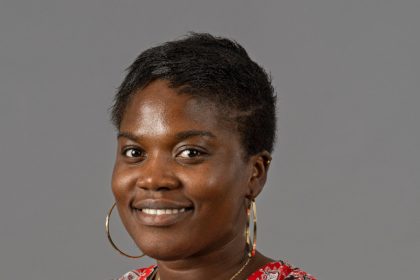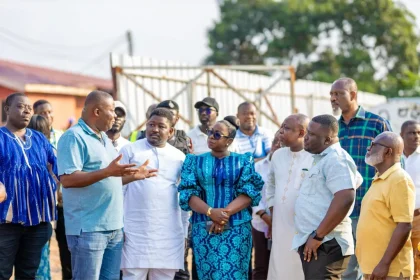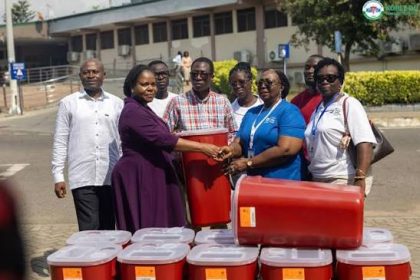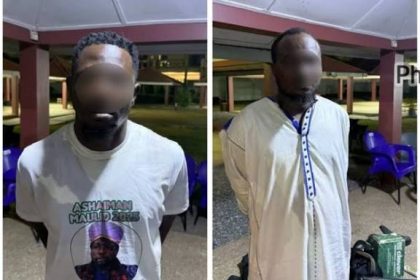Over 500 participants, mostly youth, gathered in Koforidua for a Youth Summit convened by STAR-Ghana Foundation in collaboration with the New Juaben South Municipal Assembly, Youth Advocates Ghana, and Kofkro Partners.
The two-day summit, themed “Harnessing the Power of Youth for Transformative Development,” explored how youth power, innovation, and influence can shape inclusive and sustainable communities.
The Kofkro Initiative, under the Action for Youth Development (AfYD) and funded by the Botnar Foundation, continues to inspire real change, proving that when youth are given space, tools, and trust to lead, they can transform their communities.
Ms. Eunice R. Abgenyadzi, Head of Programmes at STAR-Ghana Foundation, said the summit created a platform for young people to engage meaningfully with decision-makers, share experiences, and co-create sustainable solutions to local and national development challenges.
She noted that it also served as a springboard for transformation by building a network of young leaders who see themselves as problem solvers, innovators, and active citizens.
The Ghana Youth Summit featured plenary sessions and interactive dialogues focused on five key sub-themes: participation and governance, mental health and wellbeing, entrepreneurship, digital inclusion and economic development, right to information and accountability, and building youth champions against corruption.
Ms. Abgenyadzi explained that STAR-Ghana Foundation works with citizens, civil society organisations, government, and the private sector to promote inclusive governance, accountability, and social justice.
In a speech read by Mr. Jacob Adongo Atule, Deputy Chief Executive Officer of the NYA in charge of Finance and Administration, on behalf of the Chief Executive Officer, said young people faced systemic barriers in governance, economic empowerment, and access to platforms for meaningful engagement for years.
He stressed that sustainable development was impossible when a significant portion of the population could not participate.
“In view of that, we are working to move beyond tokenistic inclusion. Our focus is on strengthening structured platforms such as the Ghana Youth Federation that empowers young people not just to have a voice, but to have influence in decisions that shape their lives in municipalities like this one,” he said.
On economic empowerment, he revealed that the Authority would establish businesses for over 10,000 apprentices graduating from the National Apprenticeship Programme this year.
“We are also committed to working with partners to create an ecosystem that supports youth entrepreneurship, skills development, and access to capital, transforming job seekers into job creators,” he added.
He said as mandated by the National Youth Policy, the Authority was dedicated to gender mainstreaming and disability inclusion, noting that “this is not just about legislation; it is about ensuring that every young Ghanaian, regardless of background or circumstance, has a fair chance to thrive.”
Mrs. Rita Akosua Adjei Awatey, Eastern Regional Minister, reiterated the government’s commitment to enhancing youth empowerment and inclusion.
She said through initiatives such as the Adwumawura programme and local government reforms, opportunities for entrepreneurship, skills development, and civic engagement were being created, but acknowledged that more needed to be done.
“In line with this, I challenge the youth here to take ownership of your future. Be bold, innovative, and proactive. Seek knowledge, participate in governance processes, and hold leaders accountable. Your energy and ideas are indispensable in our efforts to build a prosperous and inclusive Ghana,” Mrs. Awatey stated.
GNA


